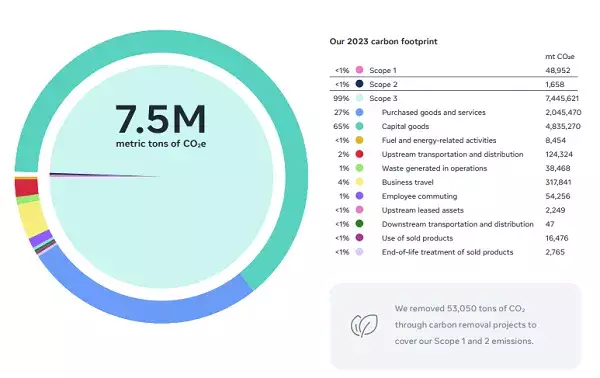Meta Platforms, Inc. has recently released its “Responsible Business Practices Report,” a document rich with insights into the company’s initiatives and strategies across various domains. As a multifaceted tech giant, Meta’s report encompasses topics that range from artificial intelligence (AI) advancements to its commitment towards sustainability and diversity. However, while the report does shed light on Meta’s progressive ethos, it also raises questions about the implications of its rapid development, especially in relation to the evolving social environment.
The most significant aspect of the report pertains to Meta’s ambitious plans for integrating AI throughout its operational framework. The company emphasizes its commitment to democratizing AI access, arguing that disparities between regions in technological access could exacerbate socio-economic divides. The report asserts, “Meta is moving our offerings beyond 2D screens toward immersive experiences like augmented and virtual reality to help build the metaverse,” envisioning a future where social technology is both immersive and accessible.
However, while such lofty aspirations seem promising, they necessitate a cautious evaluation. The rapid advancement of AI poses risks of unintended consequences. The potential for deepening societal divides is a genuine concern. While Meta aims to provide equal access to advanced technologies, the actual implementation remains a question. The disparity in technological infrastructure across different regions could hinder the intended democratization, and thus, Meta must ensure that its outreach is genuine and effective.
In conjunction with its AI initiatives, Meta has highlighted its investments of over $5.5 billion in strengthening data privacy measures since 2019. The focus on embedding privacy features into products from the outset reflects a proactive approach to safeguarding user data. However, the authenticity of these initiatives is frequently scrutinized, particularly considering previous controversies regarding data handling.
On the environmental front, the report addresses Meta’s impact and initiatives towards sustainability. The exploration of environmental responsibility is more vital than ever, and the tech industry faces increasing scrutiny regarding its ecological footprint. Although Meta appears to be making strides, the long-term sustainability of its operations requires consistent transparency and shared accountability.
The report also elucidates Meta’s position on social responsibility, ranging from its diversity in suppliers to its stance on politically affiliated contributions. While it is commendable that Meta is investing in social impact initiatives, the politicized nature of its corporate contributions might stir controversy. A statement in the report suggests that Meta, where legally permissible, supports candidates whose policy stances align with its business interests. This raises ethical questions about corporate involvement in politics and the nuances of aligning business practices with societal values.
The discussion around Meta’s approach to content moderation and human rights further complicates its narrative. While the report asserts efforts to address offensive content and misinformation, the efficacy of these measures remains contentious. The balance between free speech and the responsibility to mitigate harm online is a delicate one, and Meta’s past handling of these issues evokes skepticism regarding its current claims.
In essence, while the Responsible Business Practices Report reflects Meta’s ambitions to innovate and foster an inclusive digital environment, it simultaneously raises red flags regarding the potential repercussions of these initiatives. The aspirations of empowering communities through technology are noble, yet they are fraught with complexities that require thoughtful consideration.
Meta’s framing of its practices in a predominantly positive light glosses over the nuanced challenges that lie ahead. As the company navigates the intricate landscape of AI development, data privacy, and social responsibility, it must remain vigilant to ensure that its rapid advancements do not mirror the past mistakes witnessed within the tech industry. The commendable objectives outlined in the report must translate into actionable, transparent strategies that genuinely consider the repercussions on society as a whole. Without such diligence, the road to a sustainable and equitable digital future may remain fraught with challenges.

